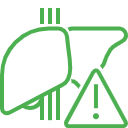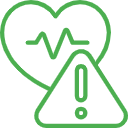How Long Can You Stay on Gabapentin? Gabapentin Long-Term Side Effects
Gabapentin, a widely prescribed medication primarily used to manage pain and several conditions, has gained attention for both its therapeutic benefits and potential long-term side effects.[1] While initially celebrated for its efficacy and relatively low-risk profile, emerging research suggests a spectrum of adverse effects associated with prolonged use, along with its potential for abuse. How long you can safely stay on gabapentin should be determined with the assistance of a medical professional.
- Gabapentin is primarily used to treat seizures and neuropathic pain by affecting the body’s chemicals and nerves.
- Despite its therapeutic uses, gabapentin has raised concerns for potential addiction and abuse, particularly among individuals with a history of substance abuse.
- Short-term side effects of gabapentin use include dizziness, drowsiness, nausea, weight gain, mood changes, and balance problems.
- Long-term use of gabapentin can lead to cognitive impairment, dependency, increased suicide risk, bone health issues, peripheral edema, and vision changes.
- Gabapentin abuse can result in withdrawal symptoms such as rebound symptoms, psychological symptoms, physical symptoms, sleep disturbances, and an increased seizure risk.
Jump to
- What is Gabapentin?
- What Are the Short and Long-Term Side Effects of Gabapentin?
- How Long Can You Stay On Gabapentin to Avoid It Becoming Habit-Forming?
- What Are the Long-Term Side Effects of Stopping Gabapentin?
- What Kinds of Treatment Are Available for Gabapentin Abuse?
- Frequently Asked Questions About Gabapentin Abuse
- Sources
What is Gabapentin?
Gabapentin is a medication primarily used to treat seizures and neuropathic pain. It works by affecting the chemicals and nerves in the body that are involved in the cause of seizures and some types of pain.[2]
Gabapentin is classified as an anticonvulsant or antiepileptic drug and is often prescribed alone or in combination with other medications to manage various conditions such as epilepsy, postherpetic neuralgia (nerve pain caused by shingles), and restless legs syndrome. Additionally, it may be prescribed off-label for other conditions like anxiety, bipolar disorder, and migraines.[3]
Gabapentin is available in various forms, including capsules, tablets, and oral solutions. Like many other prescription medications, the prescribed dose of gabapentin may vary, and the drug can be dangerous when misused, resulting in a host of short and long-term side effects.
Gabapentin Addiction and Abuse
While gabapentin has many appropriate medical uses, there has also been a growing concern regarding its potential for addiction and abuse. Despite initially being perceived as having a low potential for abuse compared to other medications, reports of misuse and dependence have emerged, particularly among those with a history of substance abuse.[4]
The addictive potential of gabapentin stems from its ability to produce euphoria and relaxation when taken in higher doses than prescribed.[5] Some people may misuse gabapentin by taking larger quantities than prescribed or using it in combination with other substances to enhance its effects.
Gabapentin is sometimes obtained illicitly or diverted from legitimate prescriptions, contributing to its misuse. The drug’s accessibility and relatively low cost compared to other substances make it an attractive option for some people seeking to self-medicate or experience its psychoactive effects.
The consequences of gabapentin misuse can be severe, ranging from physical dependence and withdrawal symptoms to overdose and death – especially when combined with other central nervous system depressants such as opioids or benzodiazepines.
Gabapentin Addiction

Gabapentin Quick Reference Chart
Drug Category
Commercial & Street Names
DEA Schedule
Administration

What Are the Short and Long-Term Side Effects of Gabapentin?
Gabapentin use can come with several short and long-term side effects, both from being used as prescribed as well as being misused:[6]
Short-Term Side Effects
Dizziness and drowsiness:
One of the most common short-term side effects of gabapentin is dizziness and drowsiness, which can impair cognitive function and motor skills.
Fatigue:
Many individuals experience fatigue or lethargy, particularly when initiating treatment or adjusting the dosage.
Nausea:
Some people may experience gastrointestinal symptoms such as nausea and vomiting, especially during the initial stages of treatment.
Weight gain:
Gabapentin has been associated with weight gain in some individuals, although the exact mechanism behind this effect is not fully understood.
Mood changes:
Mood changes, including irritability, anxiety, and depression, may occur in some individuals taking gabapentin.
Balance problems:
Gabapentin can affect coordination and balance, increasing the risk of falls, particularly in older adults.
Long-Term Side Effects
Cognitive impairment:
Prolonged use of gabapentin has been linked to cognitive impairment, including memory problems and difficulty concentrating.
Dependency:
There is a risk of developing dependence on gabapentin, particularly among individuals with a history of substance abuse. Misuse of the medication can lead to addiction and withdrawal symptoms upon discontinuation.
Increased suicide risk:
Some studies have suggested an increased risk of suicidal thoughts and behaviors in individuals taking gabapentin, particularly in those with pre-existing psychiatric conditions.
Bone health:
Long-term use of gabapentin may have adverse effects on bone health, potentially increasing the risk of fractures and osteoporosis.
Peripheral edema:
Peripheral edema, or swelling of the extremities, has been reported as a long-term side effect of gabapentin in some individuals.
Vision Changes:
Rarely, gabapentin may cause vision changes such as blurred vision or double vision, which may persist with long-term use.
How Long Can You Stay On Gabapentin to Avoid It Becoming Habit-Forming?
Gabapentin has the potential to be habit-forming, particularly when it is misused or taken in higher doses than prescribed.[7] While it is not classified as a controlled substance by the United States Drug Enforcement Administration (DEA), reports of gabapentin misuse and dependence have raised concerns within the medical community. It’s essential to use gabapentin only as prescribed by a healthcare professional and to closely monitor its use to mitigate the risk of dependence and misuse.
What Are the Long-Term Side Effects of Stopping Gabapentin?
The long-term side effects of stopping gabapentin can vary depending on factors such as the duration of use, dosage, and individual physiology. Abruptly discontinuing gabapentin after long-term use can lead to withdrawal symptoms, which may include:[8]

Rebound symptoms:
Some individuals may experience a return or worsening of the symptoms that gabapentin was originally prescribed to treat, such as seizures or neuropathic pain.

Psychological symptoms:
Withdrawal from gabapentin can trigger psychological symptoms such as anxiety, agitation, irritability, mood swings, and depression.

Physical symptoms:
Physical withdrawal symptoms may include headaches, nausea, vomiting, sweating, insomnia, fatigue, tremors, muscle spasms, and flu-like symptoms.

Sleep disturbances:
Discontinuing gabapentin may disrupt sleep patterns, leading to insomnia or changes in sleep quality.

Seizure risk:
In some cases, abruptly stopping gabapentin can increase the risk of seizures, particularly in individuals with a history of epilepsy or seizure disorders.

What Kinds of Treatment Are Available for Gabapentin Abuse?
Recovery from gabapentin abuse necessitates a multifaceted approach that addresses all the aspects of addiction (including dual diagnosis or co-occurring issues). Various treatment modalities can provide support and guidance throughout the recovery journey, including:
Frequently Asked Questions About Gabapentin Abuse
Can gabapentin abuse lead to overdose?
Gabapentin abuse can potentially lead to overdose, especially when taken in excessive amounts or in combination with other substances such as opioids or benzodiazepines. Symptoms of gabapentin overdose may include dizziness, drowsiness, slurred speech, confusion, difficulty breathing, and loss of consciousness. In severe cases, gabapentin overdose can be life-threatening and may require immediate medical attention.
How long does it take to detox from gabapentin abuse?
The duration of gabapentin detox can vary depending on factors such as the individual’s level of dependence, the dosage and duration of gabapentin use, and any co-occurring medical or mental health conditions. Generally, gabapentin detox may involve a gradual tapering of the medication under medical supervision to minimize withdrawal symptoms and reduce the risk of complications. The detox process typically lasts several weeks to months, and individuals may continue to receive support and monitoring throughout their recovery journey.
Are there any alternatives to gabapentin for managing pain or other conditions?
Sources
[1] Gabapentin: MedlinePlus Drug Information. (n.d.). Medlineplus.gov. https://medlineplus.gov/druginfo/meds/a694007.html#:~:text=Gabapentin%20is%20in%20a%20class on June 10, 2024
[2] Yasael, R., Katta, S., & Saadabadi, A. (2020). Gabapentin. PubMed; StatPearls Publishing. https://www.ncbi.nlm.nih.gov/books/NBK493228/ on June 10, 2024
[3] ELS, L. C. (2024, March 26). Gabapentin: Uses, side effects, and what you should know if you’ve been prescribed this medication. Harvard Health. https://www.health.harvard.edu/staying-healthy/gabapentin-uses-side-effects-and-what-you-should-know-if-youve-been-prescribed-this-medication on June 10, 2024
[4] Smith, B. H., Higgins, C., Baldacchino, A., Kidd, B., & Bannister, J. (2012). Substance misuse of gabapentin. British Journal of General Practice, 62(601), 406–407. https://www.ncbi.nlm.nih.gov/pmc/articles/PMC3404313/ on June 10, 2024
[5] Smith, R. V., Havens, J. R., & Walsh, S. L. (2016). Gabapentin misuse, abuse and diversion: a systematic review. Addiction, 111(7), 1160–1174.
https://www.ncbi.nlm.nih.gov/pmc/articles/PMC5573873/ on June 10, 2024
[6] Lennox, R., & Mangin, D. (2019). Gabapentin misuse. Canadian Medical Association Journal, 191(2), E47–E47. https://www.ncbi.nlm.nih.gov/pmc/articles/PMC6333539/ on June 10, 2024
[7] Is gabapentin addictive? (n.d.). Drugs.com. https://www.drugs.com/medical-answers/gabapentin-addictive-3573085/
on June 10, 2024
[8] Vickers-Smith, R., Sun, J., Charnigo, R. J., Lofwall, M. R., Walsh, S. L., & Havens, J. R. (2020). Gabapentin drug misuse signals: A pharmacovigilance assessment using the FDA adverse event reporting system. Drug and alcohol dependence, 206, 107709. https://doi.org/10.1016/j.drugalcdep.2019.107709 on June 10, 2024




